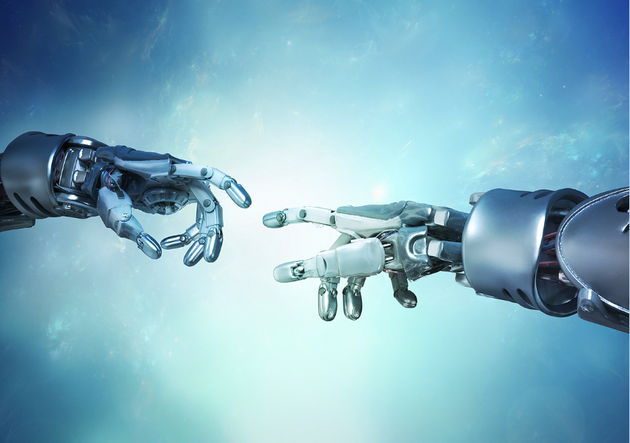Feb. 12 (NBD) -- The AI (Artificial Intelligence) industry enjoyed a strong boost in 2017.
Data from the report on China's AI industry in 2017 released by the consulting agency iiMedia Research shows that 17.7 percent of AI startups are focusing on developing computer vision technology.
The inclusive commercial channel and solid technological base have pushed computer vision a hottest sector in AI.
Mao Decao, chief scientist at AI solution provider Insigma, had an interview with NBD last Friday, sharing his observations on AI investment fever, future AI trends and the competition between China and US in the AI field.
The Shanghai-listed Insigma, deriving from Zhejiang University, engages in leading industries of computer, sensors, control, internet, big data, and AI.

Photo/VCG
China has late-mover advantages
NBD: The competition between China and the U.S. in the AI sector is a hot topic. What challenges do you think are facing China's AI development?
Mao Decao: In general, Chinese people have made outstanding contributions to AI development, for example, Baidu's former chief scientist Andrew Ng, and Google's chief scientist of cloud AI Li Feifei.
Technologically speaking, the U.S. boasts faster AI progress. However, a nice technology needs a proper ground to take root in. This is exactly where China fits in. China has advantages over the U.S. in the adoption of AI applications.
Besides, seeing from China's AI market, many AI enterprises have been equipped well enough to compete with or even excel their overseas counterparts in terms of industrialization.
NBD: It's been reported that the AI field is facing a shortage of talents. Internet giants are investing heavily in recruiting top elites. What do you make of such "braid drain" in the AI sector?
Mao Decao: Currently, the tussle for talents among enterprises is rather intensive. Judging from the research area, research-based talents are in short supply. But talents in AI application can be fostered in accordance with the demand of the industry.
Bubbles exist in AI area
NBD: Nowadays, AI startups in China are springing up, and internet behemoths are flooding in and deploying in this industry. What advantages does Insigma have amid the fierce competition?
Mao Decao: There are two ways to promote technology application: top-down and bottom-up.
By top-down, it means an AI technology comes first and then such technology gets applied gradually in different industries.
The bottom-up way refers to that some technologies have long been used in certain areas and become upgraded with new AI technology.
Insigma employs the latter one, getting different technologies married with AI to meet different industrial requirements.
NBD: What areas will Insigma concentrate on in 2018?
Mao Decao: In 2018, Insigma will focus on developing distributed cloud services and building platforms for such services.
Over the past decade, a large amount of cameras were installed in every corner of cities to build smart cities. Centralized processing was adopted in dealing with the video information those cameras collect. Compared with the costly centralized processing, the AI-backed distributed processing model will reduce the cost significantly.
NBD: AI was a sought-after investment and entrepreneurial hot spot in 2017. Do you think there exist bubbles in this sector?
Mao Decao: There are, to some extent, bubbles in the AI sector. To be frank, enterprises adopting a top-down means of marketing technology are more likely to be trapped in the bubbles, because such technology has many uncertainties and needs time to penetrate in the market.
But for enterprises popularizing their technology in a bottom-up way can alter the technology based on different industrial needs.
Email: gaohan@nbd.com.cn


 川公网安备 51019002001991号
川公网安备 51019002001991号





